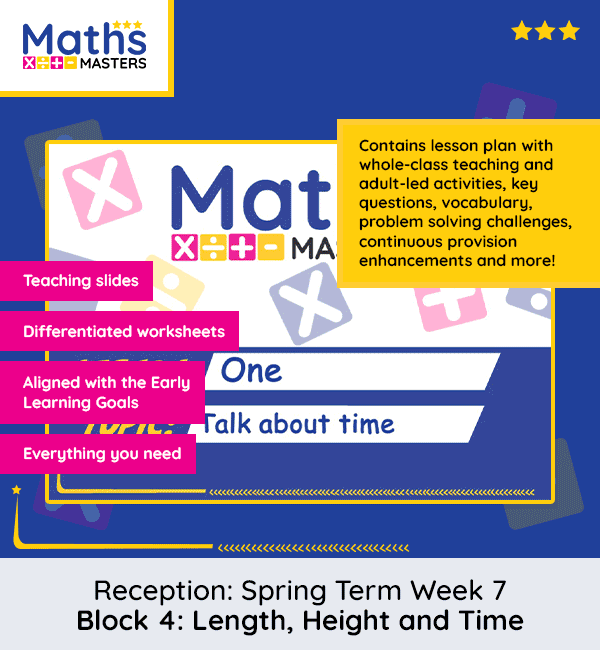What’s the best primary maths scheme? This handy guide will help you decide – as a maths subject leader or senior leader – by setting out what you should be looking for when it comes to choosing a maths mastery scheme that works for your pupils and school.
In 2014, when the current primary maths curriculum (we can’t really call it the NEW curriculum anymore!) came into force, teachers were initially at a bit of a loss as to how to turn the new maths objectives into actionable teaching sequences and lessons. There was very little in the way of guidance or documentation from the Department for Education, so schools either did their own thing, hired maths consultants or looked online for resources. Back then, there were few online maths schemes, and a varying degree of quality when it came to printable maths worksheets and the like. However now, roll on quite a few years, the publishing world has caught up and there are now several options should you choose to go for a published maths scheme – the main one being White Rose Maths. What you choose to do does of course very much depend on your needs as a school, what budget you have, and the subject knowledge of your staff – no two schools are the same, so there isn’t one definitive scheme that all schools should follow.
How do you know if your current approach to maths isn't working?
Sometimes if you know, you know. But at other times, it may be more difficult to tell. However here are some of the signs you might want to look out for:
- Children are not engaged in lessons
- There are low (or high!) level behaviour issues in maths lessons compared to other lessons
- Your maths SATs results are consistently lower than you'd like them to be
- Maths assessments across the school show consistent gaps in knowledge and skills
- Children have a poor grasp of the foundations of maths (number bonds, declarative maths knowledge, times tables etc)
- Teachers talk negatively about maths lessons, their own maths knowledge and dread teaching maths
- You're worried about what Ofsted will say about maths in your school
- Staff are spending hours and hours preparing for maths lessons - more than is reasonable, and it's eating into their work/life balance
- Maths teaching is inconsistent across the school. Everyone is doing different things
- There is not sufficient coverage of the maths national curriculum

How to improve maths in your school
Once you’ve established that there is a need to improve maths in your school, it’s important to sit back for a few moments and think clearly about how to approach the next steps. First thing – don’t rush into anything, and certainly don’t buy into a certain maths scheme just because a neighbouring school has done so – remember that even a school in your local area will still have different needs to yours, and so you should think carefully about what you are looking for before you begin.
Speak to staff
Undertake a staff maths audit – this could be a formal questionnaire asking teachers to self assess themselves in terms of both their subject knowledge of maths, and maths teaching practice/levels of confidence, or it could just be a 1:1 conversation with each member of staff. Find out where the gaps are and where the issues lie. Conducting a qualitative audit (by talking to people) will uncover a vast amount and will lay the foundations for your pathway to success. You might be surprised at what you uncover and the different levels of confidence when it comes to maths teaching. This type of fact finding will also pave the way to choosing the best maths scheme for your school as well – if that’s the route you choose to take.
Audit of current maths resources, schemes and materials
It could be that staff are already using a maths scheme (either one chosen by your school or one they’ve chosen), or varying types of maths materials including maths textbooks or an online maths resource. Take an audit of what is being used and whether this is being used consistently across the school. Effective maths teaching and learning should be progressive, building on knowledge and skills year on year, so if everyone is using different materials and teaching methods this could be your issue!
Also remember that even if you have a maths scheme embedded in your school, that doesn’t mean it’s being taught effectively. Observe a cross section of maths lessons to get a feel for how well the scheme is working for staff – do they have additional training needs? Do they think the scheme if working?
How to choose a maths scheme of work
If you haven’t got a maths scheme implemented in your school – or you have and it’s not working for your pupils – and decide that a scheme is the best route to take, here are some simple tips to help you make the right choice.

Affordability
Even if you find the perfect maths scheme for your school, if you don’t have the budget, then it’s a no go-er. Talk to your head teacher about how much budget is available to spend on a maths scheme before you start as that will likely feed into your decision making process. The cost of schemes varies from free to many thousands of pounds, so there’s a huge variation in cost.
Accessibility
How easy is it to access the scheme materials and resources, how straight-forward is the website, can you navigate it easily? If you have to spend hours searching for the primary maths resources you need, then you may as well make them yourself!
Is it time-saving?
This one links in with the accessibility feature. If the maths scheme is very difficult to navigate, you can’t find what you need quickly, it is unnecessarily complex and takes hours to make sense of – it probably isn’t for you. One of the main reasons for signing up for a maths scheme, aside from helping pupils make progress, is to save lesson preparation time for staff. If the scheme is actually making their lives more difficult – there seems to be very little point in using it.
What I will say that is that will likely be a period of adjusting at the start of using the scheme that MAY be a little time consuming and that’s to be expected. It’s just if this situation carries on and on indefinitely – that won’t be sustainable and staff will invariably ditch the scheme and do something else instead (which would be a huge waste of time, money and resources!).

Is maths subject leader support is available?
Every scheme should provide maths subject leader resources in order to help you lead the subject and implement the scheme effectively. Maths subject leader resources could include:
These resources will help you not only to implement the maths scheme, but also to monitor its effectiveness.
How easy is the scheme to implement?
In an ideal world, every maths scheme would be ‘pick up and go’ with no training needed. However in reality, it’s likely there will be a period of adjustment as teachers get used to the maths teaching resources and maths delivery methods prescribed by the scheme. There will also be a need for adaptation – no matter how good the scheme you choose is, elements will have to be adapted for each school, each class, each pupil – there will never be a one size fits all maths scheme, no matter what the publishers may say!
What resources and teaching materials does the maths scheme include?
This one is very important. It’s no good having a maths mastery scheme with a fantastic pedagogy, maths mastery underpinnings and great training if comprehensive maths teaching materials are not included! That way, there can be no consistency of teaching, as everyone would have to create their own resources, leading to varying levels of quality, and then you’re back to square one again! You’re also back to the age old “is it time-saving” question that we discussed earlier.
Ideally, your chosen maths scheme should include:
- Maths subject leader documents and guides
- Comprehensive maths lesson plans
- Differentiated maths worksheets
- Hands-on maths activities
- Primary maths knowledge organisers
- Maths revision mats - for consolidation
- End of block maths assessments
- Maths assessment tracker grids
- Full national curriculum coverage
Having this breadth of support, resource and materials will make it more likely that your chosen maths scheme will be a success in your school.
What's the best primary maths scheme?
So this leads us back to our original question – which is the best maths scheme of work? Of course we might be biased, but our maths scheme – Maths Masters should definitely be on your list of schemes to check out.
What is Maths Masters?
Maths Masters is your trusted companion for stress-free maths lessons, specifically designed to save planning & prep time whilst deepening children’s understanding of mathematics through developing strong problem solving and reasoning skills.
Benefits of Maths Masters:
- Clear and comprehensive, follows White Rose progression
- Subject planning documents such as progression maps and 3 "Is" statements
- Contains everything you need for every maths lesson
- Coverage of Reception to end of year 4
- Comprehensive weekly lesson plans (editable)
- Editable, animated maths lesson slides
- Vocabulary, small steps, and national curriculum links as well as assessment questions.
- Advice on common misconceptions/typical errors.
- Ideas for further activities, problem solving and challenges for fluency and variation.
- Knowledge organisers, revision mats and end of block assessments
- Full national curriculum coverage
Want to see for yourself? Download a free sample pack below.










